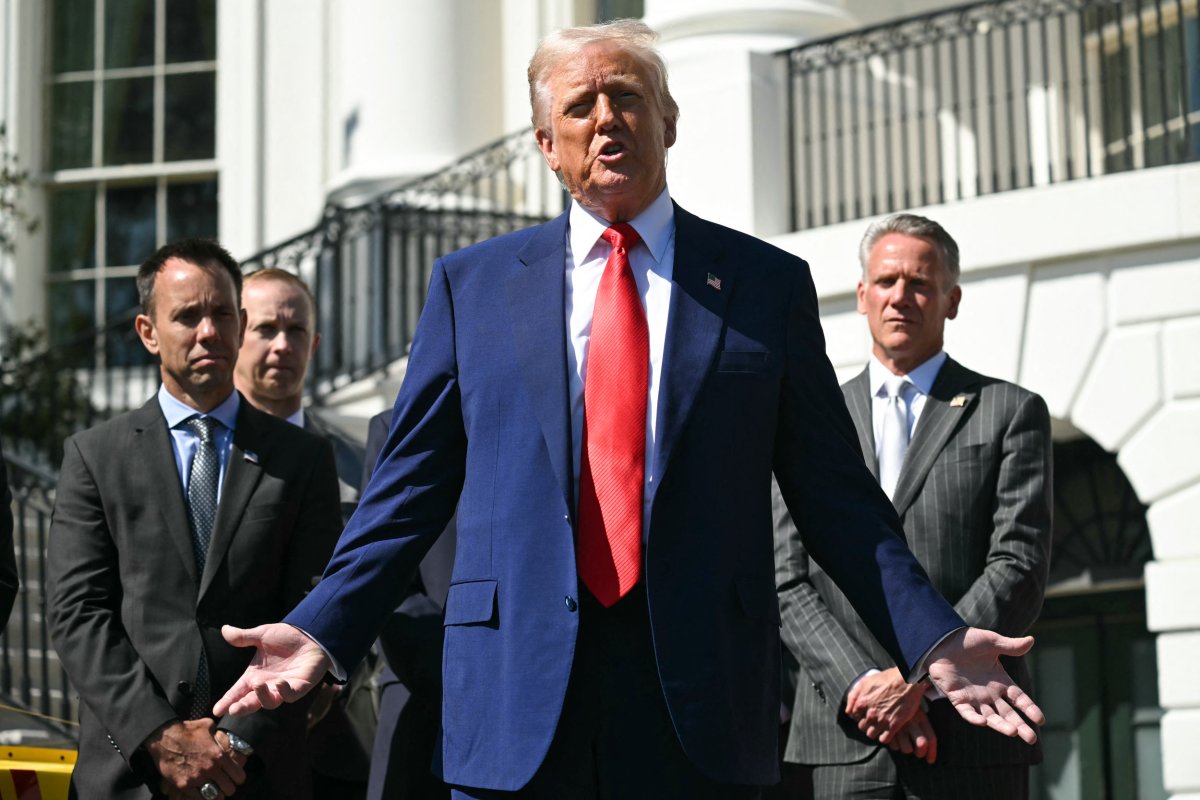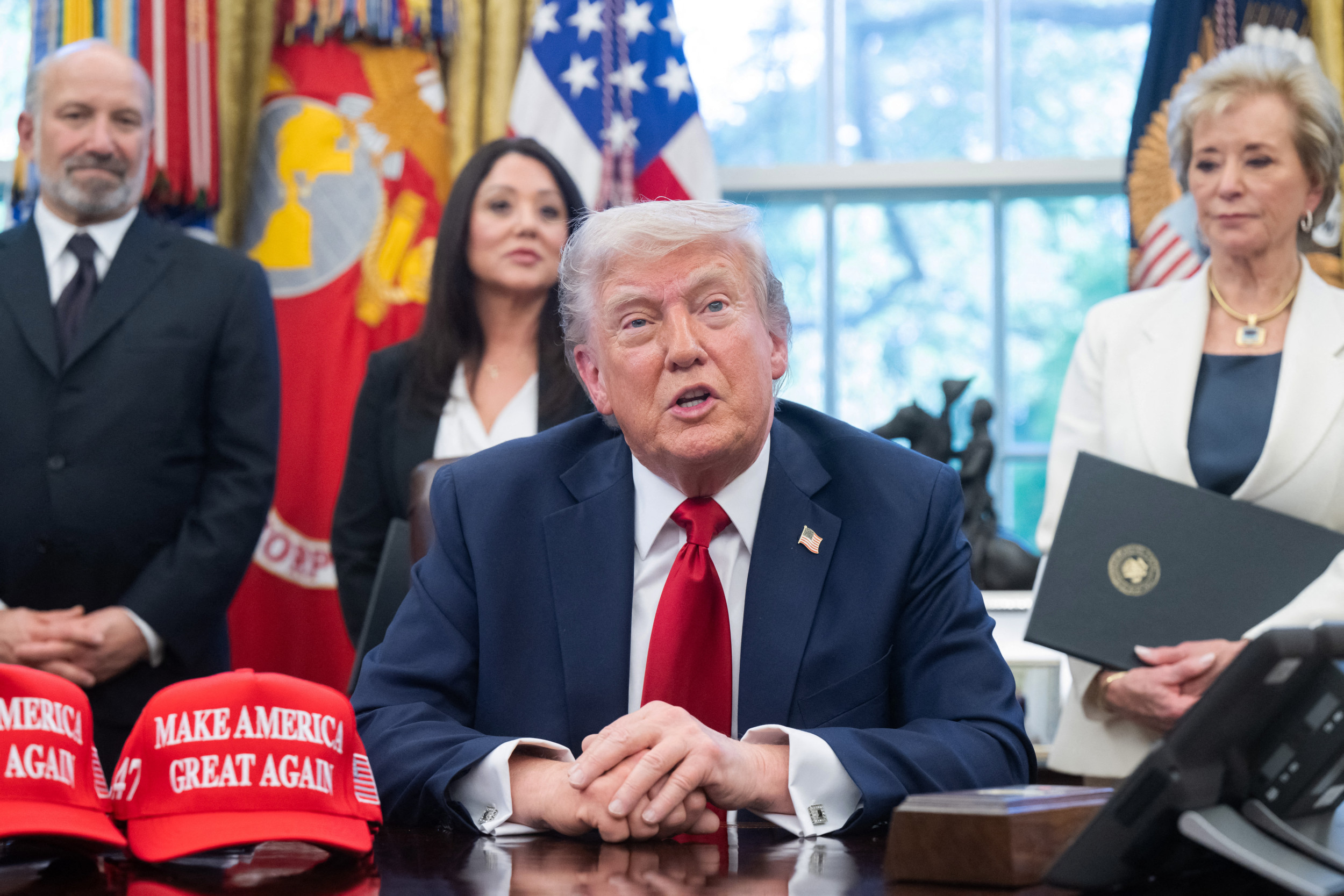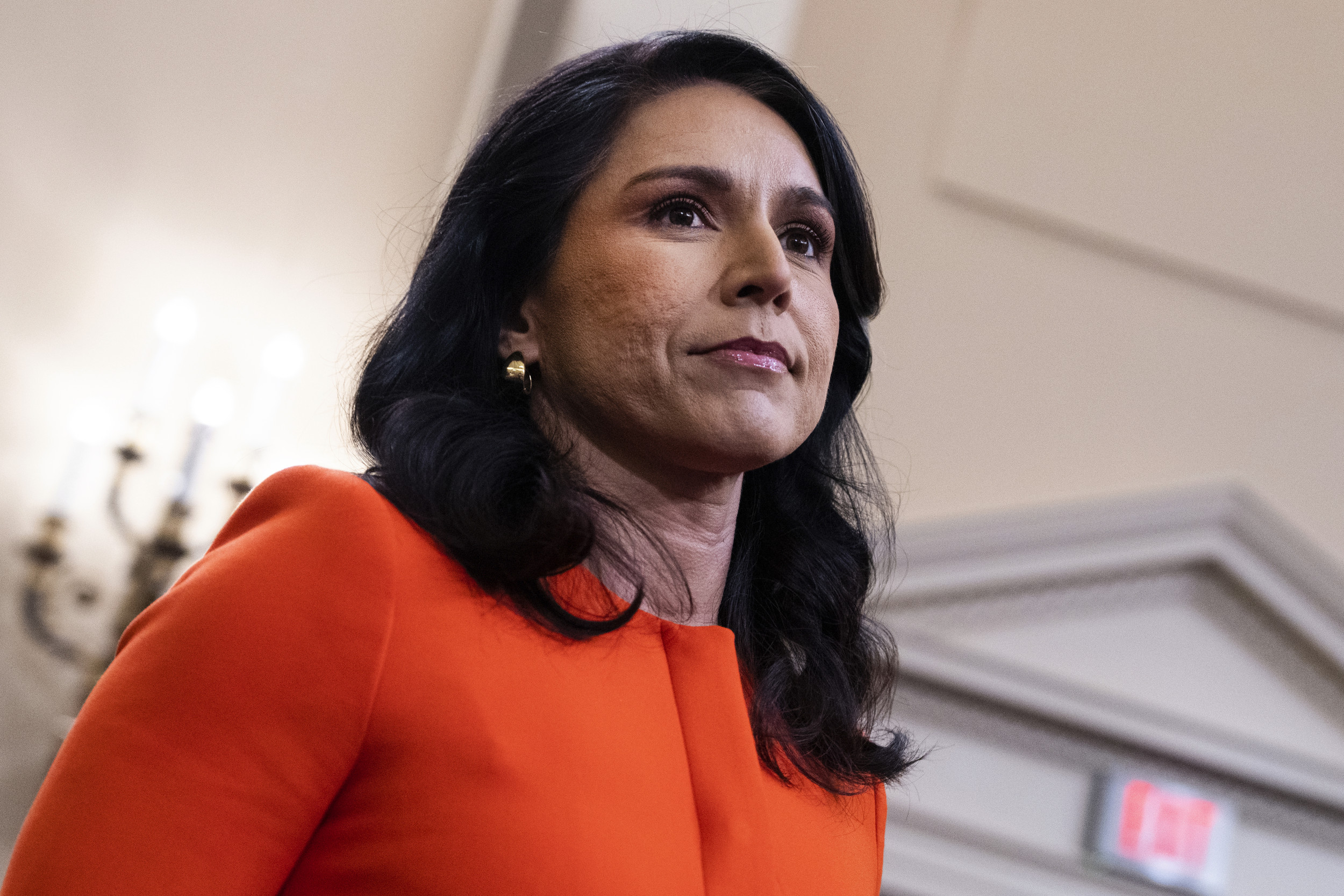🎙️ Voice is AI-generated. Inconsistencies may occur.
After Trump's announcement of a pause on reciprocal tariffs, some of America's trading partners are celebrating the brief reprieve while trying to strike deals with the administration within the 90-day window.
Newsweek has reached out to the Office of the United States Trade Representative via email for comment.
Why It Matters
Despite previously stating that the reciprocal tariffs were permanent and would not be postponed, officials are now framing that the measures as a negotiating tactic used to compel trade partners to come to the table, reminiscent of the strategies outlined by Trump in his 1987 ghostwritten book, The Art of the Deal.
While many countries reached out to the administration before the pause, this narrative would likely be strengthened if negotiations between America and its trading partners during the 90-day period result in trade deals considered favorable to the U.S.
Trump swept into office in November largely on a promise to boost the American economy. He has seen polling slip on the issue in recent months and favorable trade deals could boost those numbers ahead of the 2026 midterm election cycle.

What To Know
On Wednesday, the president announced a 90-day pause on the reciprocal tariffs that had been introduced last week. The pause excludes China, whose imports will now be subject to a 125 percent duty.
Several countries have already announced that they will be pursuing negotiations with the administration during the 90-day pause, while saying that the move has created the breathing room needed to work out trade agreements.
Taiwan, subject to a 32 percent "discounted reciprocal tariff" prior to Trump's announcement on Wednesday, has welcomed the pause and outlined its intention to begin negotiations as soon as possible.
Speaking to reporters on Thursday, Taiwan's Foreign Minister Lin Chia-lung said: "Now that we have an additional 90 days, we can discuss Taiwan-U.S. economic and trade cooperation in a more detailed and in-depth manner."
As reported by Reuters, the foreign minister said that the U.S. had already received Taiwan's proposals for a "Taiwan-U.S. coalition" and has responded to these, without providing further details.
Prior to the pause, Reuters had reported that the country was considering making around $200 billion worth of energy purchases from the U.S. over the next decade, potentially increasing liquefied natural gas imports from the country from 10 to 30 percent, in a bid to lower the duties.
An anonymous Indian government official, speaking to Reuters, described the pause as a "relief for Indian exporters," and told the outlet that the country would now be working quickly to move forward trade negotiations with the U.S. India was landed with a 26 percent reciprocal tariff, in response to what the administration calculated as the country's 52 percent tariff charged on American imports.
Japan has similarly welcomed the pause, with the country's Chief Cabinet Secretary Yoshimasa Hayashi calling this "a positive sign," according to Japanese media. Tsuyoshi Hoshino of the ruling Liberal Democratic Party's foreign affairs division said that Japan would work to finalize trade negotiations with the U.S. within the 90-day "grace period."
However, the country is still urging the U.S. to reconsider the 24 percent reciprocal tariff placed on Japanese goods, as well as the 25 percent duties on steel, aluminum and auto imports, which remain in place.
Japan was already scheduled to send a delegation to Washington to discuss trade in response to the reciprocal tariffs, and a source familiar with the matter told The Mainichi that these discussions will take place next week.
Vietnam, whose 46 percent reciprocal tariff rate was among the highest unveiled by Trump last week, said that the country and the U.S. had now agreed to commence negotiations on a "reciprocal" trade deal.
"Though the U.S. has decided to delay the imposition of tariff for 90 days, the two countries should start negotiations on a bilateral trade agreement to create a long-term framework to promote stable and mutually beneficial economic and trade relations in line with the comprehensive strategic partnership between the two countries," according to an announcement on the country's government news portal, based on comments made by Deputy Prime Minister Ho Duc Phoc.
This followed a visit to the U.S. by the deputy prime minister earlier in the week, during which he met with U.S. Trade Representative Jamieson Greer.

The European Union—whose previous "zero-for-zero" tariff offer on industrial goods was rejected by Trump—has celebrated the pause, while putting its own retaliatory measures on U.S. imports "on hold for 90 days."
"I welcome President Trump's announcement to pause reciprocal tariffs," European Commission President Ursula von der Leyen posted to X. "It's an important step towards stabilizing the global economy. Clear, predictable conditions are essential for trade and supply chains to function."
She added that the European Union remains "committed to constructive negotiations with the United States, with the goal of achieving frictionless and mutually beneficial trade."
What People Are Saying
Christopher Breen, Head of Economic Insight at the Centre for Economics and Business Research, told Newsweek: "What happens next is anyone's guess; perhaps Trump doesn't know himself. I expect he is still targeting an end state with deals or higher tariffs applied to most countries, but he has sensibly stepped back and given himself time to go through this process."
President Trump, during an event hosted by the National Republican Congressional Committee on Tuesday, said that countries were "kissing my ass" and "dying to make a deal" to avoid the reciprocal tariffs.
Lai Ching-te, President of the Republic of China (Taiwan), in an article published in Bloomberg prior to the pause, wrote: "Taiwan is committed to strengthening bilateral cooperation in manufacturing and innovation. As a trade-dependent economy, our long-term success is built on trade relationships that are fair, reciprocal and mutually beneficial. Encouraging Taiwanese businesses to expand their global footprint, particularly in the US, is a vital part of this strategy. Deepening commercial ties between Taiwanese and American firms is another."
Lai said that these principles would "guide" Taiwan's response to the reciprocal tariffs, and that the country would seek to enter trade negotiations "with a common objective of reducing all tariffs between Taiwan and the US." He added that, to this end, the country would "rapidly expand procurement of American goods."
Ursula von der Leyen, president of the European Commission, posted to X: "I welcome President Trump's announcement to pause reciprocal tariffs. It's an important step towards stabilizing the global economy. Clear, predictable conditions are essential for trade and supply chains to function. Tariffs are taxes that only hurt businesses and consumers. That's why I've consistently advocated for a zero-for-zero tariff agreement between the European Union and the United States."
"We took note of the announcement by President Trump," she wrote in a separate post. "We want to give negotiations a chance. While finalizing the adoption of the EU countermeasures that saw strong support from our Member States, we will put them on hold for 90 days. If negotiations are not satisfactory, our countermeasures will kick in. Preparatory work on further countermeasures continues. As I have said before, all options remain on the table."
Thomas Sampson, professor of economics at the London School of Economics told Newsweek: "There is no evidence that this was the plan all along. What seems to have happened is that the administration was spooked by falling stock prices and volatility in financial markets, so they decided to pause some of the tariffs.
He added: "Many countries will seek a deal. But given President Trump has a history of reneging on trade deals, countries will also worry that the US will not honor any deal that is reached. Consequently, they will also seek to reduce their dependence on trade with the U.S."
Belgian economist Paul De Grauwe told Newsweek: "What will happen next? Difficult to say. But one thing is certain though: Trump cannot return to the original tariff schedule he launched last week. This would just bring back the risk of financial crisis. So, he will have to compromise. I think the other countries now have better cards. There goes his superior negotiating tactics."
What Happens Next?
Treasury Secretary Scott Bessent had previously said that nearly 70 nations had reached out for trade talks after Liberation Day, telling reporters outside the White House on Wednesday that this figure had now risen to "more than 75."
The administration has said that postponing the tariffs will grant nations the opportunity to approach the administration for trade talks, during which all reciprocal tariffs will be reduced to the baseline rate of 10 percent.
fairness meter
About the writer
Hugh Cameron is Newsweek U.S. news reporter based in London, U.K. with a focus on covering American economic and business ... Read more




